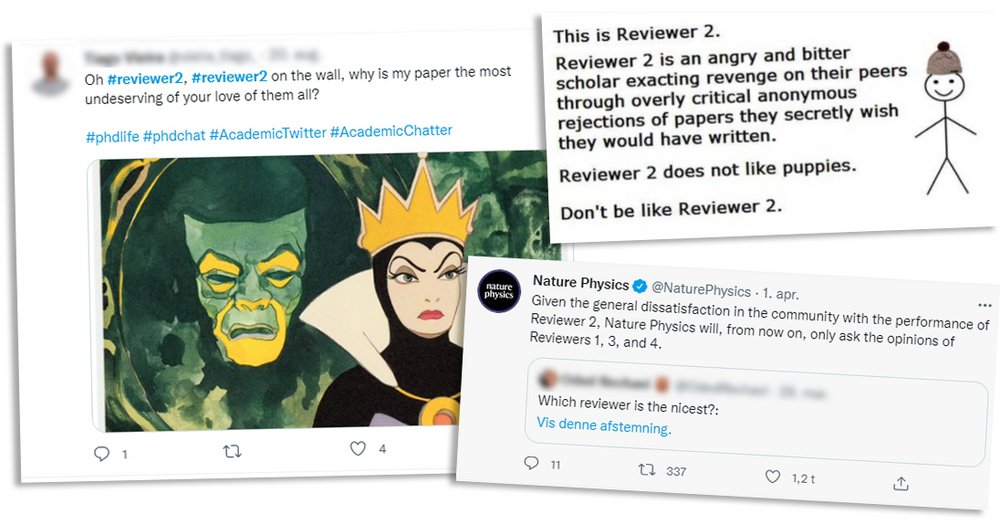- Education
-
Research
Current research
Talent
-
Collaboration
Businesses
Government agencies and institutions
Alumni
-
About AU
Organisation
Job at AU
Peer review is an integral part of a scientific life, determining success in publishing, grant applications and professional appointments. AU-researchers argue for the importance of neutral and respectful language in peer review.
2021.08.26 |

Based on their newly published article, assistant professor Rebekah Baglini (left) and associate professor Christine Parsons share three tips on how to keep peer reviews professional and neutral. Photo: Simon Byrial Fischel, AU Health.
Researchers submitting journal articles orgrant applications are expected to communicate with precise, neutral wording. Peer reviewers, however, can write more or less what they want asthey want – and peer reviewers with an unprofessional,unnecessarily harsh approach are so common, that the ‘evil’ reviewer2 has itsown hashtag on Twitter. The title“Reviewer 2”, regardless of reviewer number, refers to those who overstep their obligations as a reviewer, areovertly critical, and are demanding, aggressive, and ultimately unhelpful.
The long-recognised hostilities in peer review have led two AU-researchers, Christine Parsons and Rebekah Baglini, to provide a set of practical suggestions on being a helpful peer reviewer. Their scientific article has been peer-reviewed and published in the journal ‘Trends in Cognitive Sciences’ and deals primarily with the theme of subjectivity in language and its many expressions.
 The ‘evil’ Reviewer2 is often the subject of jokes and debates in online scientific communities. Source: Twitter.
The ‘evil’ Reviewer2 is often the subject of jokes and debates in online scientific communities. Source: Twitter.
“We have tried to provide a set of practical suggestions on how to write peer -reviews, along with an explanation of relevant concepts from the linguistic theory, which is Rebekah Baglini’s research area,” says associate professor Christine Parsons, who is a Health researcher affiliated with the Department of Clinical Medicine and the Interacting Minds Centre.
Here Parsons immerses herself in studies of cognition, communication and emotion, while assistant professor Baglini is affiliated with the School of Communication and Culture, where she researches semantics (meaning in language) and computational linguistics.
“There is no doubt that our various research approaches have been a strength during the mapping of ‘do's and don'ts’, and we hope to encourage readers who are interested in a more substantiated elaboration to consult the scientific article,” Rebekah Baglini says – and Christine Parsons adds:
“There is a norm that needs to be challenged. The destructive #reviewer2 is ‘out there’ and most of us have met him or her – and some of us have even unknowingly perpetuated bad practices. We want to remind our colleagues that a reviewer is here to help a fellow academic to improve.”
Below you can find three pieces of advice to pinpoint poor reviewing style – and, if you are a reviewer yourself, consider a more constructive alternative.
Sentences formulated such as “the manuscript is not interesting” only state that the manuscript is not interesting to the reviewer. Parsons and Baglini suggest that reviewers – even though they are required to convey their opinion – should emphasize objective reasons over subjective statements in their evaluations. Can a statement be confirmed or disputed based on the facts?
Examples of subjective language common in peer reviews include adjectives like careless and uninteresting and nouns like a mess and a dud. Parsons and Baglini state that the ideal of fairness and objectivity suffer from an overuse of this types of subjective language, which they characterize as non-neutral.
Another class of word to avoid, according to Parsons and Baglini, are ‘speaker-oriented words’. These words can add additional layer of meaning and focus attention on the feelings of the reviewer.
Examples are “I find it surprising, that…”, “disappointingly, this manuscript does not…” or “this manuscript does not provide a justification for the sample size, unfortunately”. Again the solution is simple, but difficult to put into practice: Let the statements stand on their own!
According to Parsons and Baglini an overuse of speaker-oriented words may have a suggestive or prescriptive effect on e.g. the editor, making him or her more likely to adopt the peer reviewer's ‘feelings’.
We have all received a ‘backhanded’ compliment at some point, where there is a positive comment, but also a negative implication likge “That’s great that you managed to get promoted”. In peer review, some common ways to ‘imply’ include:
In each case, there is an implication that is subtle, but clearly signals that the reviewer is not impressed. Other tactics that should be avoided include sarcasm and purely rhetorical or suggestive questions like Where is the justification of the sample size?
“Our point is that it should be sufficient to state that the sample size diminished the quality of the study – if that’s how it is,” Christine Parsons and Rebekah Baglini argue.
“We often write reviews under time pressure but writing helpful peer reviews are an invaluable service to the academic community. We suggest a simple rule of thumb for weeding out unnecessary language: would you include a phrase in your own article? If not, you may reconsider”.
___________________________________________________________________________________
Associate Professor Christine Parsons
Aarhus University, Health, Department of Clinical Medicine
Interacting Minds Centre
E-mail: christine.parsons@clin.au.dk
Mobile: 29 88 87 75
Assistant Professor Rebekah Baglini
Aarhus University, Arts
School of Communication and Culture
Department of Linguistics, Cognitive Science, and Semiotics
E-mail: rbkh@cc.au.dk
Mobile: 40 47 31 44